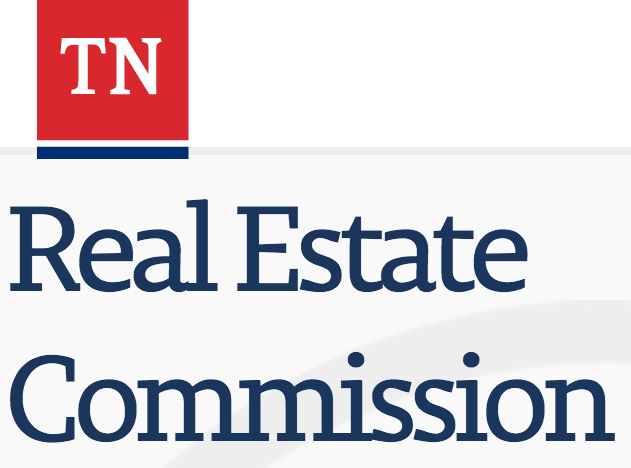
A license as a real-estate broker is necessary to sell Oregon's commercial realty. A series of courses is required to obtain a broker's licence. You must also pass the Oregon real estate exam. The licensing process can take approximately six months. It is possible to accelerate the licensing process by beginning early. A full-time student can usually complete the course within two months.
The minimum requirement for the online program is 150 hours of classroom and online learning. Online courses can be offered by an approved state education provider in different formats. They are easy to use and can be accessed at your own pace. You can also enroll in an in-person, traditional course. If you opt for the latter, you'll need to attend a local, licensed school.
After completing the required coursework, you'll need to submit your application and pay a fee. Also, you'll have to go through a background investigation. This can take up to four weeks to complete, and may involve fingerprinting. After the background check is complete, you will receive an email with your ApplicantID number. Once you have completed the background check, you will be notified of your Applicant ID number. You can register for an eLicense and start to earn your license.

Your eLicense account contains information about your courses as well as their completion status. Final exams are also required. A comprehensive final can be as short as 20 questions. While a more complex course may require 150 questions, a shorter final can last as long as 40.
The exam tests your knowledge of key topics related to property law and valuation. It can be divided into two sections. The National section takes about two hours, while the State section takes 75 minutes. The passing score for the State sections is approximately 60 percent. While the National section scores in the 80s, it has an average score of around 80 percent.
The real estate broker's exam requires a total of 130 questions. Candidates can either sit in person at testing centers or online for the exam. Either way, the first half focuses only on national laws, and the second part covers state law.
It is important to research before you make a decision on whether you want to take an online or in-person class. The official website of the state provides information about licensing requirements as well as background checks. For any questions or concerns, contact the state's Real Estate Agency.

For a successful outcome on the Oregon real estate exam, you'll want to take the time to study. It's difficult to pass the exam on your first attempt. You should be prepared. Pre-licensing courses are a great way to improve your chances of passing the test on your first attempt.
To receive your license, you must be at least 18 years old, have a high school diploma or GED, and pass a background check. On the State of Oregon's website, you can find more information about the exam as well as the process.
FAQ
Can I afford a downpayment to buy a house?
Yes! There are programs available that allow people who don't have large amounts of cash to purchase a home. These programs include government-backed loans (FHA), VA loans, USDA loans, and conventional mortgages. For more information, visit our website.
How long does it usually take to get your mortgage approved?
It depends on many factors like credit score, income, type of loan, etc. It usually takes between 30 and 60 days to get approved for a mortgage.
How much does it take to replace windows?
Window replacement costs range from $1,500 to $3,000 per window. The exact size, style, brand, and cost of all windows replacement will vary depending on what you choose.
What are the benefits to a fixed-rate mortgage
Fixed-rate mortgages allow you to lock in the interest rate throughout the loan's term. You won't need to worry about rising interest rates. Fixed-rate loan payments have lower interest rates because they are fixed for a certain term.
How much money should I save before buying a house?
It depends on how long you plan to live there. Start saving now if your goal is to remain there for at least five more years. If you plan to move in two years, you don't need to worry as much.
Should I use a mortgage broker?
A mortgage broker may be able to help you get a lower rate. Brokers can negotiate deals for you with multiple lenders. Some brokers do take a commission from lenders. Before signing up for any broker, it is important to verify the fees.
Statistics
- It's possible to get approved for an FHA loan with a credit score as low as 580 and a down payment of 3.5% or a credit score as low as 500 and a 10% down payment.5 Specialty mortgage loans are loans that don't fit into the conventional or FHA loan categories. (investopedia.com)
- Over the past year, mortgage rates have hovered between 3.9 and 4.5 percent—a less significant increase. (fortunebuilders.com)
- Private mortgage insurance may be required for conventional loans when the borrower puts less than 20% down.4 FHA loans are mortgage loans issued by private lenders and backed by the federal government. (investopedia.com)
- Some experts hypothesize that rates will hit five percent by the second half of 2018, but there has been no official confirmation one way or the other. (fortunebuilders.com)
- The FHA sets its desirable debt-to-income ratio at 43%. (fortunebuilders.com)
External Links
How To
How to manage a rental property
While renting your home can make you extra money, there are many things that you should think about before making the decision. These tips will help you manage your rental property and show you the things to consider before renting your home.
Here are the basics to help you start thinking about renting out a home.
-
What are the first things I should consider? Before you decide if you want to rent out your house, take a look at your finances. If you have any debts such as credit card or mortgage bills, you might not be able pay for someone to live in the home while you are away. It is also important to review your budget. If you don't have enough money for your monthly expenses (rental, utilities, and insurance), it may be worth looking into your options. You might find it not worth it.
-
How much is it to rent my home? There are many factors that influence the price you might charge for renting out your home. These include things like location, size, features, condition, and even the season. It's important to remember that prices vary depending on where you live, so don't expect to get the same rate everywhere. The average market price for renting a one-bedroom flat in London is PS1,400 per month, according to Rightmove. This means that you could earn about PS2,800 annually if you rent your entire home. That's not bad, but if you only wanted to let part of your home, you could probably earn significantly less.
-
Is it worth it? There are always risks when you do something new. However, it can bring in additional income. It is important to understand your rights and responsibilities before signing anything. Your home will be your own private sanctuary. However, renting your home means you won't have to spend as much time with your family. You should make sure that you have thoroughly considered all aspects before you sign on!
-
What are the benefits? So now that you know how much it costs to rent out your home and you're confident that it's worth it, you'll need to think about the advantages. Renting your home is a great way to get out of the grind and enjoy some peace from your day. Whatever you choose, it's likely to be better than working every day. If you plan well, renting could become a full-time occupation.
-
How can I find tenants After you have made the decision to rent your property out, you need to market it properly. You can start by listing your property online on websites such as Rightmove and Zoopla. Once potential tenants reach out to you, schedule an interview. This will allow you to assess their suitability, and make sure they are financially sound enough to move into your house.
-
How can I make sure I'm covered? If you fear that your home will be left empty, you need to ensure your home is protected against theft, damage, or fire. Your landlord will require you to insure your house. You can also do this directly with an insurance company. Your landlord may require that you add them to your additional insured. This will cover any damage to your home while you are not there. This does not apply if you are living overseas or if your landlord hasn't been registered with UK insurers. In this case, you'll need to register with an international insurer.
-
Sometimes it can feel as though you don’t have the money to spend all day looking at tenants, especially if there are no other jobs. Your property should be advertised with professionalism. It is important to create a professional website and place ads online. Additionally, you'll need to fill out an application and provide references. Some people prefer to do everything themselves while others hire agents who will take care of all the details. It doesn't matter what you do, you will need to be ready for questions during interviews.
-
What should I do once I've found my tenant? If you have a lease in place, you'll need to inform your tenant of changes, such as moving dates. Otherwise, you can negotiate the length of stay, deposit, and other details. You should remember that although you may be paid after the tenancy ends, you still need money for utilities.
-
How do I collect rent? When it comes to collecting the rent, you will need to confirm that the tenant has made their payments. If your tenant has not paid, you will need to remind them. You can deduct any outstanding payments from future rents before sending them a final bill. If you're having difficulty getting hold of your tenant you can always call police. They won't normally evict someone unless there's been a breach of contract, but they can issue a warrant if necessary.
-
How can I avoid problems? It can be very lucrative to rent out your home, but it is important to protect yourself. Make sure you have carbon monoxide detectors installed and security cameras installed. Check with your neighbors to make sure that you are allowed to leave your property open at night. Also ensure that you have sufficient insurance. Do not let strangers in your home, even though they may be moving in next to you.